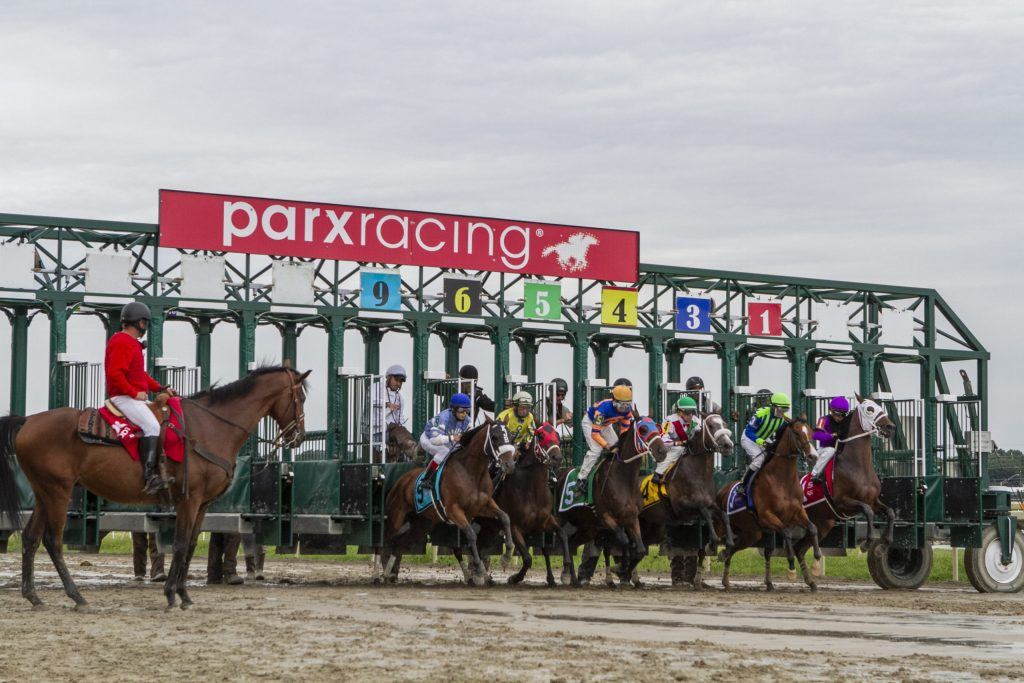Is Banking on Sports Wagering at OTBs a Winning Bet for Pennsylvania Racing?
Posted on: August 18, 2020, 12:42h.
Last updated on: August 19, 2020, 12:22h.
Horse racing is struggling is Pennsylvania, and it’s a downward trend at least a decade in the making.

This past week, the state’s Gaming Control Board released the 2019 Pari-mutuel Benchmark Report. The report shows how the state cashes in for subsidizing thoroughbred and harness racing.
That subsidy, known as the Pennsylvania Race Horse Development Fund, is a heavy one, amounting to about 10 percent of the slot machine revenue generated at the state’s 12 casinos. In 2019, the fund totaled $238 million.
The fund has a few uses. It bolsters thoroughbred breeding and helps fund health and pension benefits for horsemen’s organization members and their families and employees. However, most of that money goes into purses for races. Last year, $162.8 million of the $182.8 million for purses came from slots.
However, interest in Pennsylvania horse racing is waning.
According to the PGCB, the total handle on racing held in Pennsylvania was $668.6 million in 2019. That’s down from $807.6 million in 2013. More startlingly, the taxable handle, a portion of which is money bet in Pennsylvania on out-of-state races, dropped 10.7 percent last year to $300.2 million. It’s a figure that’s dropped steadily since 2009 when the taxable handle was $733.8 million.
The PGCB says taxable handle has declined “due to a decrease in demand for wagering on out-of-state races.” It also comes as the number of off-track betting (OTB) parlors has decreased over the years from 23 to just seven.
Going Off-Track to Get On Track?
But it’s in those dwindling OTBs where Pennsylvania pins its hopes for racing’s reemergence. Currently, three of the seven OTBs open in the state have sportsbooks attached to them.
Certainly the hope is that the addition of sports wagering within these locations may attract a new fan base for the horse racing industry,” the report states.
The data doesn’t necessarily back up the assumption.
Next door in New Jersey, the Meadowlands is home to a FanDuel sportsbook, and while track officials have said it’s helped bring more people to the harness track, those sports bettors aren’t crossing over to the pari-mutuel windows.
Indiana has allowed sports betting at its three OTBs since sports betting started there nearly a year ago. After drawing a 14.1 percent share of the handle last September, the first month of sports betting in the state, the OTB’s share dropped precipitously. It went from 7.2 percent in October (when the first mobile sports betting apps went online) to just 3.1 percent before the COVID-19 shutdown in March.
Perhaps not coincidentally, the OTB share in Indiana dropped as the mobile share increased, and like Indiana, Pennsylvania has a very robust and open mobile sports betting marketplace. Bettors there need only to download an app to their phone and bet from anywhere. They don’t need to go to the local OTB.
Recovery No Sure Bet
This year, COVID-19 has also affected horse racing in Pennsylvania. Tracks were dark for months because of the pandemic, and even after racing resumed, there were setbacks.
Earlier this month, Parx Racing announced the cancellation of its two major Grade I races, the Pennsylvania Derby and Cotillion Stakes. The races would have been run in late September, and the rescheduled Triple Crown races had an impact on the Pennsylvania Derby decision.
Even before COVID, racing was in trouble this year in Pennsylvania, as Gov. Tom Wolf (D) proposed taking most of the development fund and putting that money into a scholarship program. The initiative was met with resistance from horsemen and some lawmakers. But it raises a valid question if the state can get a better return on its slots tax dollars if they’re applied elsewhere.
Given the state of the sport elsewhere, it’s not a sure bet that horse racing recovers in Pennsylvania. Rather than putting hope in what appears to be a long shot bet at best, some observers think Pennsylvania’s racing industry would be better off looking at other ways to attract new players.
And maybe that can involve the sportsbooks. Perhaps, some observers say, it should follow its neighbor’s lead on the issue. Then it could leverage the sportsbooks in the state to market the sport to their clientele.
That’s not a sure thing either. But it seems to be a better bet than banking on the OTBs.
Related News Articles
Most Popular
Mirage Las Vegas Demolition to Start Next Week, Atrium a Goner
Where All the Mirage Relics Will Go
Most Commented
-
Bally’s Facing Five Months of Daily Demolition for Chicago Casino
— June 18, 2024 — 12 Comments
















Last Comment ( 1 )
Pennsylvania horseracing is chock full of scandals and poor oversight. Every track should be closed till they stop the obvious corruption that goes on year after year at ALL their tracks. Joke of the industry!!